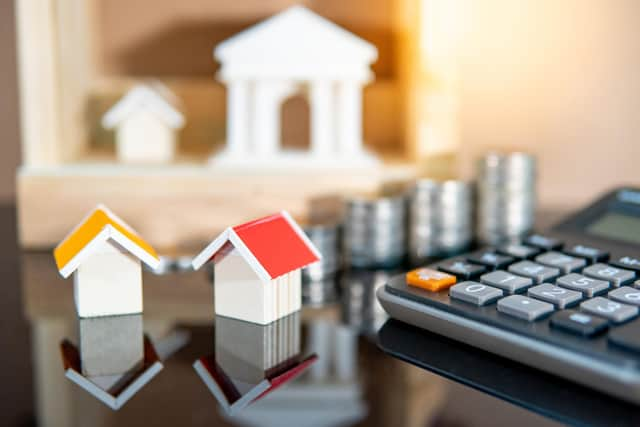We need to level up UK’s stamp duty schemes - David Alexander
According to the latest government statistics for Land and Buildings Transaction Tax (LBTT) – the Scottish version of stamp duty - 1,720 homebuyers paid 83.5% of all tax paying £37.9m out of a total of £45.4m collected.
The 10% tax rate begins for all properties sold for £325,001 or more and each homebuyer over this threshold paid an average of £22,034. For properties sold for more than £750,000 just 130 people paid £85,384 each on average contributing £11.1m which equates to nearly a quarter (24.4%) of all tax raised.
Advertisement
Hide AdAdvertisement
Hide AdFurthermore, over a quarter (27.3%) of all revenue raised through the additional dwelling supplement (ADS) was paid by landlords, property investors, and second homeowners contributing £170.4m over the last year. In the last three months alone, the ADS has raised £51.4m.


The revenue raised from LBTT has increased by 64.3% in the 12 months to September 2022 compared to the year to September 2019. The Scottish Government has received £623.8m between October 2021 and September 2022 compared to £379.7m in 12 months to September 2019. In the last three months alone, this tax has brought in £191.5m and these months are the three highest totals since LBTT was introduced in April 2015.
All of this may sound reasonable to some people who will think if you can afford to buy a house worth more than £325,001 you can afford to pay more tax. But realistically homes costing £325,001 are not that unusual in many parts of Scotland and many of the buyers are not rich but are workers who are doing essential jobs.
The people buying these homes are the backbone of the workforce such as nurses, teachers, office workers and others who are being asked to pay substantially more in property tax than their English counterparts. If these people vote with their feet and decide that moving to Scotland to work is prohibitively expensive, then we may continue to experience serious labour shortages in key sectors in the coming years.
Politicians like to say that they want those with the broadest shoulders to contribute the most and it is clear that many people buying a home in Scotland are doing just that. They are contributing substantially to the Scottish economy. The annual tax take from property taxes is almost equivalent to the £750m price paid for the rights to develop the seabeds around Scotland. That was a one-off payment while this is an annual bounty.


If we are to be seen as a progressive country wanting to attract the brightest and the best, then we must ensure we have a property tax regime which is fair and at least as competitive as our nearest neighbour. However, with a 10% rate of tax kicking in at the relatively modest price of £325,001 we risk penalising those we need the most and discouraging them from coming to live in Scotland.
Nobody is denying that governments’ all need to raise taxes to provide the services we all require. But it is surely also incumbent of governments to have a system which is attractive to people, which encourages them to move to a country, and a system which incentivises investment and growth. I think we are some way from this in Scotland and levelling up the existing stamp duty schemes across the UK would be a welcome development.
David Alexander is CEO of DJ Alexander Ltd
Comments
Want to join the conversation? Please or to comment on this article.